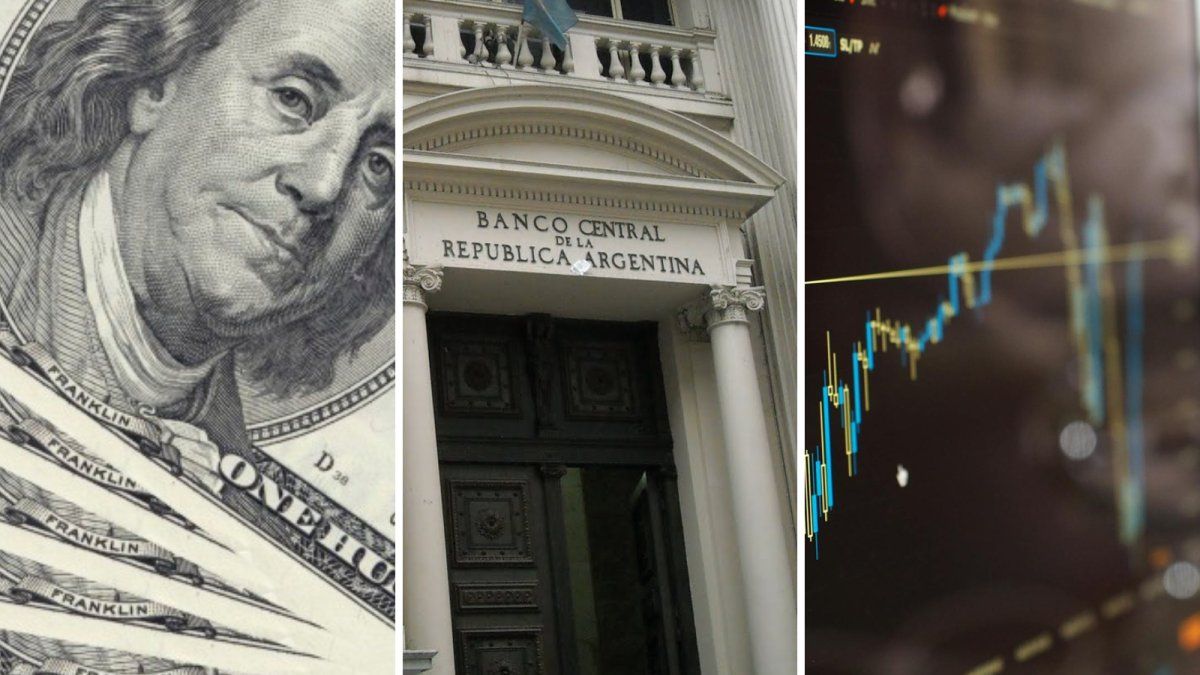Leonardo Chialva, from the consulting firm Delphos Investment, Chialva assessed the impact of the recent rate cut decided by the United States Federal Reserve (Fed) and analyzed the prospects for the dismantling of foreign exchange restrictions (cepo). With the rate cut and a dollar stabilized after having reached $1,500 two months ago, Chialva considered that the Government has an opportunity to continue with its economic plan.
Despite this respite, several analysts agree that Argentina’s challenges remain considerable, especially with regard to lifting the currency controls and the accumulation of reserves needed by the Central Bank to meet upcoming debt maturities. During an interview on Radio Rivadavia, Chialva stressed that the Fed’s decision brought relief to emerging economies, including Argentina.
Regarding the exit from the “Valley of Death”, as he described it, Chialva assured that the process has already begun, but that it will be crucial to maintain between 4 and 6 months of global stability for economic growth to consolidate. At the local level, he stressed the importance of increasing demand for pesos as a result of growth, which would allow the Central Bank to accumulate dollars through a gradual adjustment in the exchange market.
“Since April, international conditions had tightened, further complicating the country’s economic situation. But with the Fed’s rate cut, the pressure on emerging economies is easing. People have to understand that interest rates rule everything,” he explained. He added that “if in one place I am paid 8% and in another 2%, the capital goes where it yields more.” This, according to Chialva, has led to the appreciation of currencies in countries with higher rates and the devaluation of those with lower rates, particularly harming Argentina in the last year and a half due to the strengthening of the dollar.
The Strategist’s Analysis
This “super dollar,” as he called it, made imports more expensive and worsened the country’s economic crisis. Despite recent improvements, Chialva warned that the reserve situation remains worrying, as Argentina faces significant debt maturities. “Argentina has to pay US$9 billion to private companies, and it doesn’t have them,” he warned.
Regarding the lifting of the exchange rate restrictions, Chialva was clear in pointing out that it will not be an immediate process. “The headline in the newspapers will be ‘Argentina has left the exchange rate restrictions’, but in practice this will mean the unification of the different exchange rates and the elimination of the PAIS tax. Even so, the country will continue with a ‘dirty float’, that is, a regulated exchange rate. It will not be a total liberation,” he explained. Large multinationals and those seeking to transfer large sums of money abroad will continue to face restrictions, which he described as a “managed exchange rate restriction.”
dollar exchange rate cap
Regarding the lifting of the exchange rate restrictions, Chialva was clear in pointing out that it will not be an immediate process.
Image created with artificial intelligence
Regarding the current economic policy, Chialva highlighted the fiscal adjustment as one of the greatest achievements of Javier Milei’s government. “The greatest success of the Government was the fiscal front, having closed all the taps, and society seems to have voted for that,” he said. This adjustment, together with the elimination of subsidies and the economic reorganization, has begun to show results, although, according to the analyst, more time and favorable international conditions are still needed.
Finally, Chialva offered an optimistic view of Argentina’s future, acknowledging that the challenges are enormous, especially in terms of reserves and debt. However, he considered that the country has begun to take the necessary measures to overcome the crisis. “The key is to maintain fiscal adjustment and take advantage of the more favorable international context,” he concluded. He also left a forceful reflection: “We cannot collapse for US$9 billion,” recalling that Argentina has overcome much more severe crises in the past.
Source: Ambito
I am a 24-year-old writer and journalist who has been working in the news industry for the past two years. I write primarily about market news, so if you’re looking for insights into what’s going on in the stock market or economic indicators, you’ve come to the right place. I also dabble in writing articles on lifestyle trends and pop culture news.




